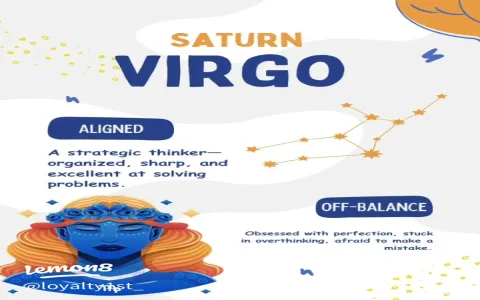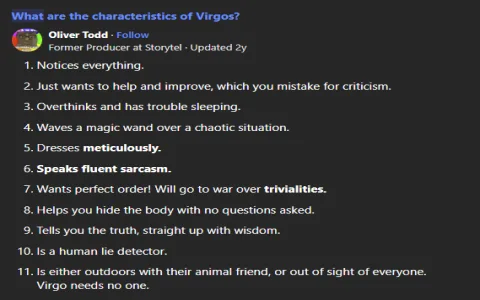Man, I gotta tell you, this whole dating game had me absolutely messed up for the last year. I’m a high-functioning guy, you know? I lock down my career, my apartment is spotless, I hit the gym—I do all the things people tell you to do to be a catch. But every time I got close to someone, maybe three or four dates in, it just evaporated. Ghosted, or hit with the classic, “You’re great, but…”
I was driving myself nuts trying to debug the problem. Was it my clothes? My job? Did I talk too much about spreadsheets? I kept meticulously tracking what went wrong, which, ironically, was probably half the problem right there.
The Diagnosis: When Organization Becomes Over-Organization
I finally hit a wall after this one date last month. I had meticulously planned the route to the restaurant, checked the menu three times, and even looked up her favorite wine region just in case. When she showed up ten minutes late, I didn’t say anything, but I know my face betrayed me. Later, when she ordered a dish, I instantly jumped in and suggested a tweak to the side sauce because I “knew the chef preferred it that way.”
We barely made it past appetizers. I went home and stewed. The next day, I straight-up texted my best friend—the guy who manages to date like a normal person—and asked him, no BS, what my dating kryptonite was. His reply was blunt: “Dude, you’re not dating a person, you’re auditing them. You’re a human checklist.”
That forced me to look at the classic male Virgo stereotypes I usually laughed off. The nitpicking, the perfectionism, the emotional constipation, the absolute need for control and predictability. Bingo. My inherent need for order was reading as high-level anxiety and control-freak behavior in casual dating settings. It wasn’t attractive. It was exhausting.
The Fix: Implementing the Anti-Virgo Protocol
I decided to treat these traits like bad habits that needed immediate, aggressive behavioral correction. I designed three simple rules to follow on the next three dates I scheduled. I called it the “Anti-Virgo Protocol.”
Phase 1: Silence the Critic (The ‘Shut Up and Listen’ Rule)
I realized my biggest issue was offering unsolicited fixes, advice, or corrections. If she mentioned a funny typo in her email, I’d instantly offer five tips for better proofreading tools. If she complained about traffic, I’d start explaining the optimal route she should have taken. I decided: If it’s not a direct request for help, I will only validate or ask a follow-up question.
I went out with Sarah. She started telling a story about a frustrating moment at work where her presentation went sideways. My brain immediately fired up with three solutions, a restructuring plan, and an analysis of her co-worker’s flawed logic. I physically clamped my mouth shut and forced myself to say: “Wow, that sounds incredibly frustrating. How did you handle that in the moment?” It was insane how much better the conversation flowed when I stopped trying to manage her problem and just let her vent.
Phase 2: Embrace the Chaos (The ‘25% Wing It’ Rule)
I always had every second of the date planned. It made me feel secure, but it killed spontaneity. For the next date, I planned 75%—the main restaurant—but left 25% open. No after-dinner plans. No backup bar selected. I forced myself to ask my date, Amy, once dinner was over, “So, what sounds good now? Left, right, dessert, or home?”
She laughed and suggested a random dive bar three blocks away I would never have chosen. We walked, talked about nothing important, and ended up having a blast because there was zero pressure or structure. I felt a spike of anxiety letting go of the reins, but watching her relax and take the lead was actually a huge turn-on. It forced me to be present instead of checking my mental timeline.
Phase 3: Stop Over-Analysis (The ‘Texting Delay’ Rule)
This was the hardest part. As a Virgo, I treat texts like legal contracts. I’d spend 20 minutes crafting the perfect response, worrying about tone, punctuation, and if I used too many or too few emojis. This obsessive analysis led to either delayed, overly formal replies or instant spamming.
The rule: When a text comes in, unless it’s time-sensitive, I had to wait 30 minutes before responding. I used that time to do something else—load the dishwasher, answer a quick work email. I forced myself to write the reply quickly, without reviewing it more than once.
- Result 1: My responses were quicker, punchier, and felt more authentic, less like a press release.
- Result 2: I completely cut down on the anxiety cycle of checking my phone every five minutes.
The Payoff: Less Perfection, More Connection
I recorded three dates using this protocol. The results were startling. The conversations were lighter. The dates felt less like interviews and more like actual human interaction. I stopped feeling like I needed to be the perfect, flawless partner, and just let myself be the slightly awkward, well-meaning guy I actually am.
It’s not about erasing the Virgo traits—you can’t change who you are—it’s about turning the dial down on the negative application of those traits. My organizational skills are great for my job, but they were deadly for my dating life. By intentionally introducing small amounts of “sloppiness” and taking away my power to micro-manage interactions, I finally started connecting with people instead of just trying to impress them with my flawless itinerary. If you’re stuck in the same analytical rut, seriously, stop trying to fix the person across the table, and start forcing yourself to get comfortable with imperfection.








